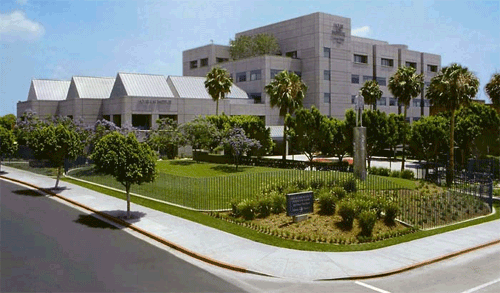
House Ear Institute building in Los Angeles, California
With the development of multi-channel cochlear implants, recipients have been able to realize even greater benefits from this technology. The multi-channel cochlear implant was FDA-approved for pediatric use in 1990. In the early 1990s, the pediatric implant program at the House Ear Institute/House Clinic typically implanted about 12 children per year. Today, approximately 55 children are implanted through this program annually, and physicians of the House Clinic have trained colleagues around the world to perform the cochlear implant surgery. The cochlear implant has proved to be one of the most significant advances in the treatment of deafness, and as it has continued to improve technologically approximately 50,000 pediatric patients have received these devices worldwide.
"Hearing is essential to spoken language development, and the earlier hearing loss occurs in a child's life, the more serious its effects on communication and learning," said researcher Laurie Eisenberg, Ph.D., House Ear Institute, who also was an audiologist on the first pediatric cochlear implant team in 1980. "Today, we implant children as early as 12 months, which means we can positively affect communication at a crucial stage of development," continued Eisenberg.
Cochlear implants are surgically implanted electronic devices that also include externally worn components. The implants provide sound information for people who are unable to hear conversational-level speech through the use of even the most powerful hearing aids. Many patients are able to understand speech with a cochlear implant, and most children who are appropriate candidates are able to develop functional oral communication skills and even attend regular educational programs.
About the House Ear Institute
The House Ear Institute (HEI) is a private, non-profit 501(c)(3) organization dedicated to advancing hearing science through research and education to improve quality of life. HEI scientists are exploring the causes of auditory disorders at the cellular and molecular level as well as the complex relationship between the ear and brain, and refining the application of auditory implants, diagnostic techniques and hearing aids. For more information please call (213) 483-4431 or visit the Web site at www.hei.org.

